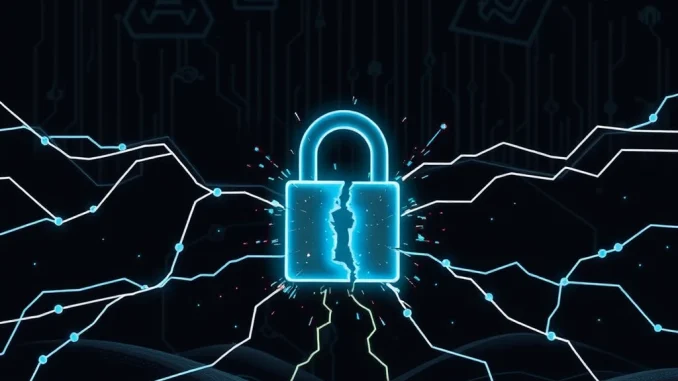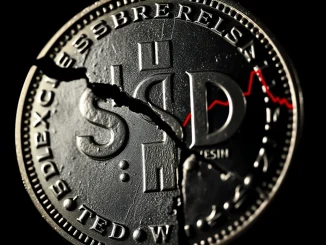
The world of decentralized finance (DeFi) has been hit with another security incident. News broke recently regarding a significant security breach affecting the Zunami Protocol. This event highlights ongoing challenges in the DeFi space and raises concerns about the robustness of various protocols.
What Happened in the Zunami Protocol Hack?
Reports confirm that the Zunami Protocol, a project operating within the Curve (CRV) ecosystem, experienced a hack. The incident resulted in a substantial loss of user assets.
- Approximately $500,000 worth of digital assets were stolen.
- The specific assets targeted were zunUSD and zunETH, native tokens within the Zunami ecosystem.
- The theft was confirmed and reported by the blockchain security firm Peckshield via the social media platform X (formerly Twitter).
This type of Zunami Protocol hack underscores the vulnerabilities that can exist even within established DeFi environments.
Where Did the Stolen Funds Go?
Following the Zunami Protocol hack, blockchain analysis quickly traced the movement of the stolen funds. A key detail reported by Peckshield was the destination of these assets.
The pilfered zunUSD and zunETH were transferred to Tornado Cash.
Tornado Cash is a cryptocurrency tumbler or mixer that enhances transaction privacy by breaking the on-chain link between the source and destination addresses. While it has legitimate privacy use cases, it has also been a preferred tool for hackers seeking to obscure the origin of illicitly obtained funds. The use of Tornado Cash in this incident makes tracing and potentially recovering the stolen assets significantly more difficult.
Why Does This Matter for DeFi Security?
The Zunami Protocol hack is more than just an isolated event; it’s a reminder of the persistent risks in the DeFi sector. As DeFi platforms grow in complexity and value locked, they become attractive targets for malicious actors.
Key takeaways for DeFi security:
- Smart Contract Risk: Hacks often exploit vulnerabilities in the underlying smart contracts that govern DeFi protocols. Rigorous auditing and testing are crucial but not always foolproof.
- Ecosystem Interdependencies: Protocols like Zunami often interact with others (like Curve). A vulnerability in one area can potentially have ripple effects.
- Rapid Fund Movement: The speed at which funds can be moved and subsequently laundered (via tools like Tornado Cash) makes rapid response and intervention challenging for protocols and law enforcement.
Every DeFi hack, including the Zunami Protocol hack, serves as a case study in the evolving landscape of blockchain security threats.
What Role Does Peckshield Play?
Blockchain security firms like Peckshield play a vital role in monitoring the decentralized space. They use sophisticated tools and analysis techniques to detect suspicious activity, trace fund flows, and alert the community and affected protocols about ongoing attacks or vulnerabilities.
In the case of the Zunami Protocol hack, Peckshield’s swift identification and public reporting via X were instrumental in confirming the incident and providing initial details about the stolen amount and destination (Tornado Cash). Their work is critical for maintaining a degree of transparency and accountability in a permissionless environment.
What Can Users Do?
For users of DeFi protocols, staying informed is paramount. While direct actions to prevent a protocol-level hack are limited, understanding the risks is key.
- Research the security practices of protocols you use.
- Understand the inherent risks of interacting with smart contracts.
- Be aware that even established projects can be targets.
- Follow reputable security firms like Peckshield for alerts.
The Zunami Protocol hack is a stark reminder that vigilance is necessary when participating in DeFi.
Conclusion: The Ongoing Challenge of Crypto Security
The Zunami Protocol hack, resulting in $500,000 in stolen assets sent to Tornado Cash, is the latest in a series of incidents highlighting the persistent challenges in crypto security, specifically within the DeFi sector. While innovation continues at a rapid pace, security must remain a top priority for developers and users alike. The work of firms like Peckshield is essential in this ongoing battle against malicious actors. As the DeFi space matures, learning from incidents like the Zunami Protocol hack will be crucial for building more resilient and secure systems for the future.



